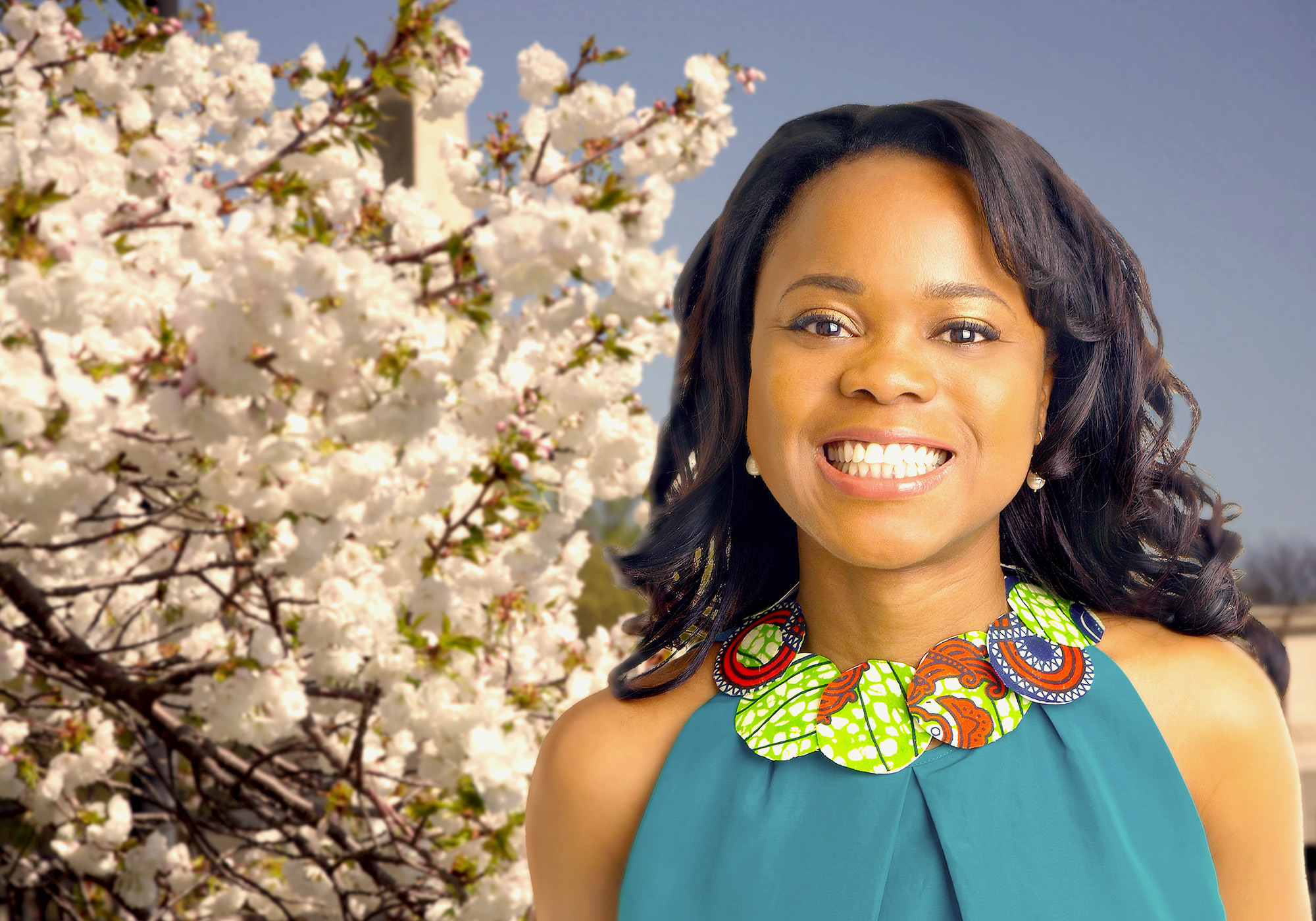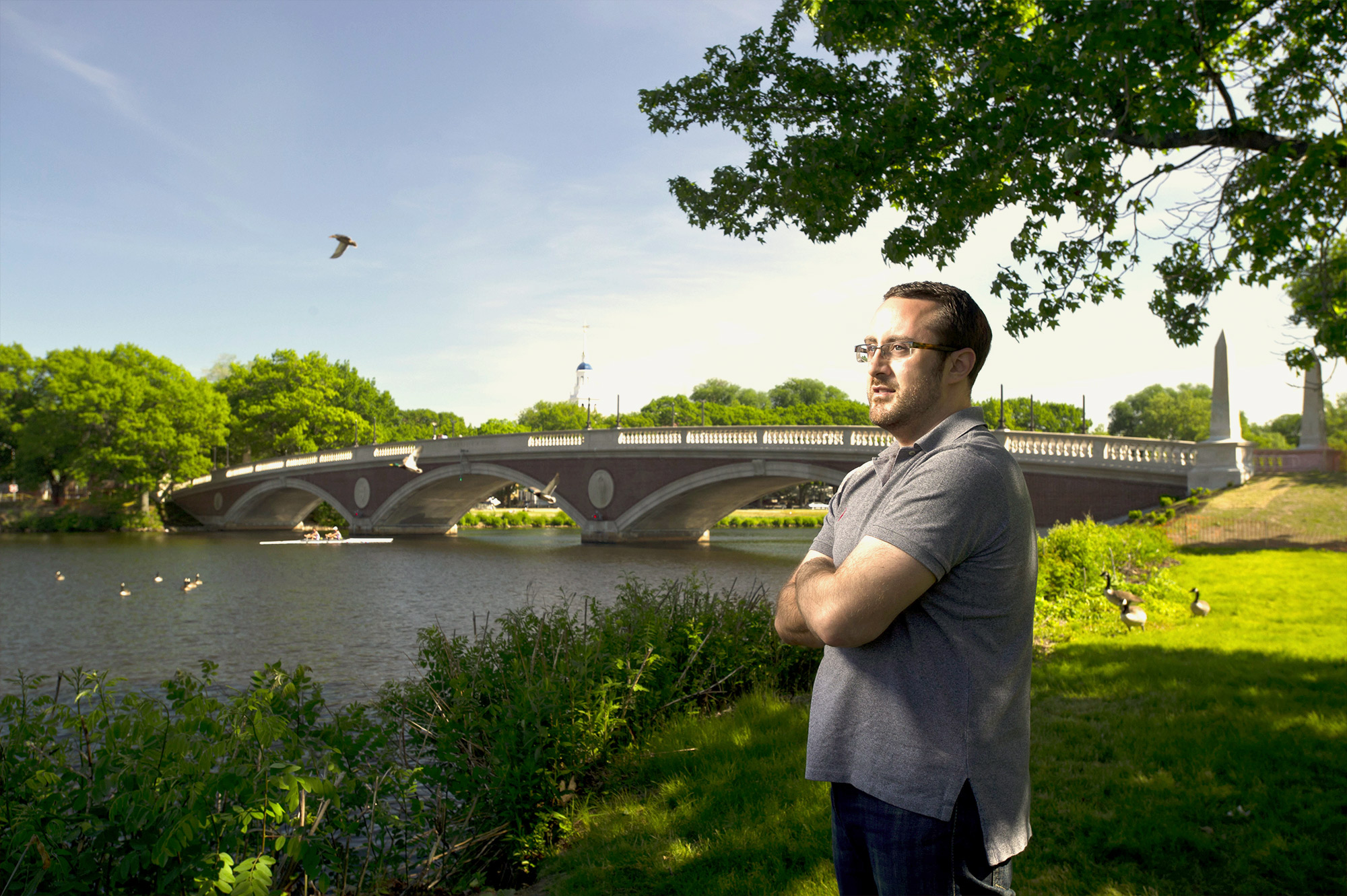Rewriting the Immigrant Experience
Several years ago, Amma Bonsu was entrenched in personal and professional discouragement.
She loved journalism, and had already spent a few years traveling throughout Africa, unearthing deep and elusive stories about people who rarely made the news. But she received many rejection letters for these stories, and she started questioning whether or not journalism was the right path for her.
Bonsu soon received an answer in the form of a brief meeting with Dr. Maya Angelou, after the celebrated poet had delivered an inspiring lecture.
“I met her and wanted to whine and complain about not getting what I wanted, and she told me, ‘Everything that you’ve gone through, someone else has not only survived but thrived. Have an attitude of gratitude,’” says Bonsu.
This was just the perspective that Bonsu needed to hear, and it couldn’t have come at a better time. “It’s not supposed to be easy. Someone else did it, and I can do it too,” she says.
I wanted the best of both worlds. And Harvard offered me both.
Getting the credentials
The following year, Bonsu chose to develop her skills as a journalist. She officially enrolled in the Master of Liberal Arts degree program in the field of journalism at Harvard Extension School, where she took most of her classes online from Canada. She juggled four classes per semester, which allowed her to complete the degree in about 16 months—all while living and working full time in Toronto as a manager for a Canadian bank.
The program had its challenges. Like other Extension School students, Bonsu needed to meet the on-campus requirement. For her this meant flying to Boston for her project management class Monday through Thursday, then catching a redeye flight on Friday back to Toronto for the weekend.
It was worth the hassle, says Bonsu. “I had some of the skills of a good writer, but professional training will differentiate what I’m doing with what other people are doing.” And the flexibility of distance learning allowed her to hone her skills while maintaining her commitment to her job. “I wanted the best of both worlds,” she says. “And Harvard offered me both.”
Portraying the challenges of immigrants
For her final capstone project, Bonsu originally wanted to write a series about a variety of topics across Africa, where she had focused much of her previous freelance work. But the Ghana native ended up tailoring her project more locally, in her current home of Canada.
I wanted to look at the challenges I experienced and the opportunities that came my way, and tap into the broader experience.
Bonsu moved to Canada in 1998, when she started college at Queen’s University in Ontario. She faced the difficulties and isolation that many new immigrants undergo, and her own history served as the backbone of her capstone project on the immigrant experience.
“Canada is fueled by immigrants, and immigrants are fueled by Canada—it’s a symbiotic relationship,” she said. “I wanted to look at the challenges I experienced and the opportunities that came my way, and tap into the broader experience.”
Bonsu wrote three articles for her capstone, all of which documented different facets of immigrant life in Canada. One piece highlighted the tribulations immigrants must wrestle with in finding new jobs when they arrive. Another story shed light on arranged marriage fraud among South Asians in Canada. The third exposed the deeply personal world of skin-lightening culture among dark-skinned immigrants.
Engaging sources isn’t easy
The themes Bonsu tackled in her capstone project are intimate. She had to gain the trust of her sources and encourage them to share sometimes difficult memories. Reporting complex stories also required time—to identify the right sources, find them, and talk to them long enough to get the story.
How do you tell stories that are memorable to the reader? What is an effective story? … That’s the call of writing and communication.
Bonsu’s capstone advisor, David Abel, recommended she avoid doing too much preliminary research on the topics at hand and instead suggested she dig deeper and talk directly to the people who were affected by the immigrant experience.
“He knows what he was talking about. He was a good coach. How do you tell stories that are memorable to the reader? What is an effective story?” says Bonsu. “That’s the call of writing and communication.”
Creating a memorable and effective story required talking to the right people, and that wasn’t always easy. For the article on arranged marriages, Bonsu found it difficult to find people who were willing to share their stories on fraudulent marriage. Many had already been interviewed in the local news, and they didn’t want to discuss it any further.
She encountered a similar reticence to talk—but for different reasons—when researching her story on skin-lightening culture. In this article, she exposed the deeply embedded perceptions on skin tone within the immigrant community. This “shadeism” is a more nuanced form of racism, defined in her piece as “discrimination based on skin tone among individuals of the same ethnicity.”
The shame associated with shadeism is strong, she says. “It’s so deeply seated in our personal and cultural psyche that we don’t even talk about. I think statistics show 80 percent of Nigerian women bleach their skin. This is alarming because of the health implications—many of these countries aren’t regulating the bleaching cream ingredients.”
Bonsu deftly wove together intimate stories with alarming facts. Many large companies lower the potency of bleaching creams and rename them “skin-brightening creams” when selling to Western audiences. Marketing is less politically correct in African countries. “In the other hemisphere, it’s more potent and blatant,” she says.
Embracing the positive
In her capstone project, Bonsu made sure to illuminate the positive stories amid the strife. She spoke to one young woman—who just “could not wash the dark away” as a child—who has since learned to love and embrace her dark skin. Another woman gave her daughter dark-skinned dolls to illustrate that beauty comes in all shades.
There’s always the feeling of being an outsider … That challenges me to speak and excel more in whatever field I’m in. How do I use the life skills I’ve acquired as an immigrant and my educational skills to elevate my status or impact people around me?
This positivity underscores Bonsu’s message to the world. “There’s a real need for these stories to be told—especially the good-news ones,” she says. “When we hear those positive stories, we can start to rewire how people integrate into society. We can embrace the good elements of immigrant culture and do away with the ones that handicap us.”
Therein lies the heart of Bonsu’s mission. As a journalist and an immigrant herself, she is uniquely positioned to understand both the emotions and the facts that comprise the immigrant experience.
“There’s always the feeling of being an outsider—it never leaves you, even when you become a permanent resident or citizen. That challenges me to speak and excel more in whatever field I’m in,” says Bonsu. “How do I use the life skills I’ve acquired as an immigrant and educational skills to elevate my status or impact people around me? I’m always struggling with that.”
Whether she’s in the corporate banking world of her day job or immersed in the stories of her journalist work, Bonsu has learned to pay attention more. She listens first and talks later, even when it isn’t easy.
Every day Bonsu reflects on the message she heard years ago from Dr. Angelou, that life isn’t easy but we get through it, just like others have before us. Those words ring true not just for Bonsu’s personal history but also for the immigrant experience that she captures so well in her work. Millions of people have migrated to far-flung countries, and more will continue to do so. As Bonsu reveals in her stories, they are not only surviving—they are thriving.

